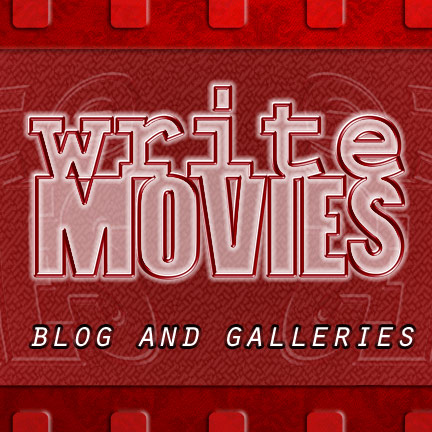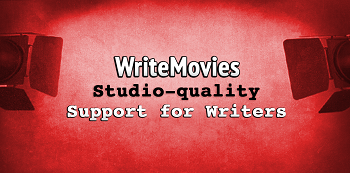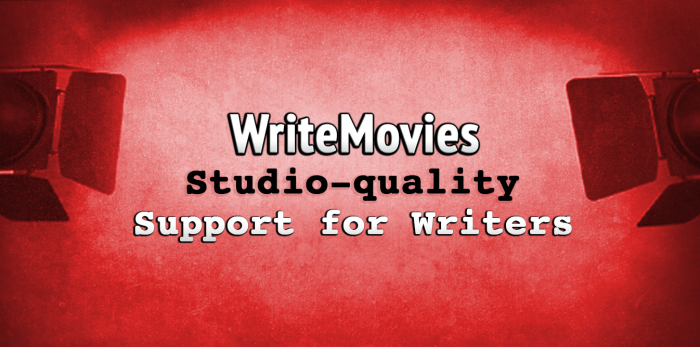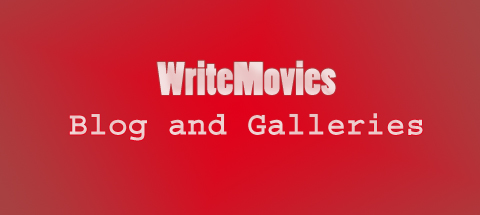
by John | May 11, 2018 | Updates, WriteMovies News
After spending just over two years with us, we give our thanks to Jamie White as he pursues pastures new…
It’s been a great couple of years with WriteMovies. I came across their 8-week virtual internship by chance, and that was the portal to so many opportunities, some I wouldn’t have even thought about!
I’ve had the chance to work on script consultancies, pitching materials, meet producers, work on a couple of film projects, write reviews, Insights articles, and, of course, converse with a load of you writers!
Before I sign off, I thought I’d share a few of my highlights from the past couple of years – not all my work, but some real great stuff.
 INSIGHTS: Genre and what it really tells us. This is one of the first articles Ian Kennedy wrote while I was training as a script analyst. I love a good chat on genre, what makes a genre, semantics, syntactics. But this article really helped me to understand the pragmatics of genre (bloody Altman…) and it’s such a good guide for how you should be writing your genre script.Check it out here!
INSIGHTS: Genre and what it really tells us. This is one of the first articles Ian Kennedy wrote while I was training as a script analyst. I love a good chat on genre, what makes a genre, semantics, syntactics. But this article really helped me to understand the pragmatics of genre (bloody Altman…) and it’s such a good guide for how you should be writing your genre script.Check it out here!- GAME OF THRONES Season 7 Review. After a little while, and quite a few script consultancies, I got more chances to write reviews and critical pieces for the site. My GAME OF THRONES season 7 review was one of my earlier reviews, but I think still one of my faves. I got to review one of my favorite shows (though probably its worst season) AND revealed one of my very own conspiracy theories – that Sony were releasing trash like THE EMOJI MOVIE to deter hackers – tell me that doesn’t make sense!Check out my GoT ramblings here.
 Writing for Video Games Articles. From one of my first, to one of my last… My Writing for Video Games articles. I may enjoy the medium of video games more than film and television, so it was a joy to get the chance to write about this topic and give you guys some advice at the same time. I hope you game writers take some inspiration from these articles.Read the first article here.
Writing for Video Games Articles. From one of my first, to one of my last… My Writing for Video Games articles. I may enjoy the medium of video games more than film and television, so it was a joy to get the chance to write about this topic and give you guys some advice at the same time. I hope you game writers take some inspiration from these articles.Read the first article here.- Attending Pitch Meetings. I’ve had the rare and exciting opportunities to attend several meetings with film producers to talk about the prospects of several of our winning scripts coming to life. Sure, I was the sidekick to our Director of World Wide Development, Ian Kennedy, but attending these sorts of meetings have been vital to my development. I got to see first hand how you should be pitching, what sort of language and tactics to employ. A great opportunity and a great experience. Loved it!
 Reading your scripts… From my start with the internship, to the very end, the one constant has been the chance to read, analyze and judge the scripts you guys have sent in for contests and consultancies. Seriously, some of these scripts I could really visualize, some to an extent I could imagine the cinematography to their inevitable film. Some really were THAT good. I wish the writers that we’re developing now get to realize their dreams – if just one of these scripts gets made, that would truly make my time with WriteMovies a success (not that it hasn’t been anyway!)
Reading your scripts… From my start with the internship, to the very end, the one constant has been the chance to read, analyze and judge the scripts you guys have sent in for contests and consultancies. Seriously, some of these scripts I could really visualize, some to an extent I could imagine the cinematography to their inevitable film. Some really were THAT good. I wish the writers that we’re developing now get to realize their dreams – if just one of these scripts gets made, that would truly make my time with WriteMovies a success (not that it hasn’t been anyway!)

by John | Aug 18, 2017 | Industry News, WriteMovies News, Writing Insights
Why Hollywood loves book adaptations… and how we can help with yours!

A recent article from The Verge earlier in the year caught our eye. It’s an excellent piece on why Hollywood are so into book adaptations right now. Here’s our summary on the article and our own thoughts on it…
“Why Hollywood is turning to books for its biggest productions” by Andrew Liptak. https://www.theverge.com/2017/1/26/14326356/hollywood-movie-book-adaptations-2017-expanse-game-of-thrones
“The book is better than the movie!” – it’s a complaint we’ve all heard from audiences. So, why does Hollywood keep the faith with adaptations? In recent times, adaptations have taken off dramatically, all starting with Peter Jackson’s THE LORD OF THE RINGS trilogy, and the best current example being GAME OF THRONES – the biggest TV show in the world right now.
Some reasons why book adaptations work so well for Hollywood:
1. There’s already a plot and a story for them – there’s less risk of them creating a bad story if a good one already exists.
2. There’s a positive knock-on effect to book publishers. A successful film release probably means increased sales of the book itself.
We definitely agree with the first point. Low risk, high-yield when it comes to book adaptations. But good books have more than just a good story. They already have a fanbase. Studios see this fanbase as a guaranteed audience, guaranteed cash in the bank. Then they’ll try to appeal to as many other people as possible, too.
Here at WriteMovies, we’ve always championed books with great screen potential, and generated the first novel commission for acclaimed author Cornelia Kempf. Enter our Summer competition with YOUR book to have the chance of winning our contest itself, and ALSO of our award for ‘Book with the Best Screen Potential’ which could be the breakthrough your book is waiting for as you seek adaptation to the screen. The ‘Best Screen Potential’ winner gains free Development Notes to help you adapt it yourself or attract a leading screenwriter to the project.
Read the full article by Andrew Liptak at The Verge here: https://www.theverge.com/2017/1/26/14326356/hollywood-movie-book-adaptations-2017-expanse-game-of-thrones
Exclusive to WriteMovies – To syndicate this content for your own publication, contact ian (at) writemovies dot-com.
© WriteMovies 2017

by John | Aug 11, 2017 | Industry News, Our pick of the web for writers and producers, WriteMovies News
Our pick of the web for July 2017 – From the @WriteMovies Twitter Feed!

Our @WriteMovies Twitter feed has been sharing lots of exciting things giving our tips of the best new articles, insights and offers for screenwriters and producers on the web. And in case you’ve missed anything there, here is our pick for July 2017…

by John | May 25, 2017 | Our pick of the web for writers and producers, WriteMovies News
Our pick of the web for April and May 2017 – From the @WriteMovies Twitter Feed!

Our @WriteMovies Twitter feed has been sharing lots of exciting things giving our tips of the best new articles, insights and offers for screenwriters and producers on the web. And in case you’ve missed anything there, here is our pick for April and May 2017…

by John | Jan 3, 2017


Think of your script like a house – it needs a structure and blueprints (narrative) which must be put in the right order (plot), before adding any furnishings (story).
Remember these are three different things! Plot points, inciting incidents, structure, storylines… so many different aspects for you to take into consideration for this, and all of these tips have beem taken from actual script consltancies for WriteMovies.
PLOT – “Plot is the writer’s choice of events and their design in time.” (McKee, 1999:43)
- Critical moments – the crucial component in delivering a memorable and compelling, critical moment – that what happens has to be both plausible and inevitable, according to what we already know about both characters and the situation they are in
- Avoid developing your plot using coincidences or deus ex machina-esque plot devices – these are deeply unsatisfying.
- For example, if a character suffers from a sudden aneurysm, this might be authentic to real life, but the lack of connection it has to the plot does not gratify the audience. We like to feel that everything is connected
- Be careful when altering the pace of your script – if the plot has otherwise been full of energy and jeopardy, it would be somewhat unsatisfying to have a slow-paced and low-key ending.
- A distinctive and vibrant setting is almost pointless if it’s coupled with a familiar and predictable plot and vice versa.
- A script should explore all answers (or, at least 2 answers) to its central question. Otherwise, the script will feel like the writer is only giving their own (biased) opinion. For a discourse to be created, more than one side to an argument must be heard.
STORY – “A story is the embodiment of our ideas and passions in Edmund Husserl’s phrase the ‘objective correlative’ for the feelings and insights we wish to instill in the audience.” (McKee, 1999;66)
- Sometimes you may need to move further from an authentic source material in order to fulfill the potential of your script.
- The plot and the story you are telling is just as important as the theme you try to embed in it.
- Believability and authenticity within the diegesis is pivotal.
- Sometimes how you tell your story – with distinctive tones and images – is more important than what the story is telling.
- If you’ve got a love story to tell, introduce the love interest character subtly, or we may all recognize the whole future story arc in seconds.
- With true stories you must make a decision, to tell the story authentically or to adapt it to improve the storytelling potential.
- The story of your script can be strengthened if all of the main action points arise as a direct consequence of elements we’re already familiar with in the central plot.Unexpected jokes and set-pieces can propel the characters through the story.
Narrative – The structuring of events that happen in the story, in a specific order. It’s the blueprints, the architecture, the recipe, for your script.
- Although following ‘the hero’s journey’ structure may be formulaic, it does mostly provide an excellent structure for the plot of your script.
- Your story can, more often than not, fit into the 3 Act Structure no matter how many acts it has. Having four acts (“1”-“2”-“3”-“4”) can be set up as “1”-“2″”3”-“4”, meaning Acts 2 and 3 can be viewed as a sole Act, Act 2.
- It’s been argued that 13 episode arcs work particularly well for television shows – with HANNIBAL exploiting that system, and George R.R. Martin (A Song of Ice and Fire) has expressed he would have made GAME OF THRONES using the same structure…”With thirteen episodes, we could include smaller scenes that we had to cut, scenes that make the story deeper and richer.” – http://www.denofgeek.com/tv/game-of-thrones/30921/george-rr-martin-wants-13-episode-game-of-thrones-seasons
- The 13 episode arc in the 3 Act Structure would look like this – Act 1 = “1””2″”3″ Act 2 = “4””5″”6″”7″”8″”9″”10″ and Act 3 =”11″”12″”13″. This shows that Acts 1 and 3 have a 3 Act Structure for themselves, with Act 2 having two 3 Act Structures that could be utilized (episode 7, could and probably would serve as the season’s midpoint).
We’ll help perfect your narrative, plot, and story of your script with our consultancy packages, which you can order right HERE!
Got any writing tips to share? Tweet us at @WriteMovies using the hashtag #WrMWritingTips.

by John | Dec 9, 2016 | Our pick of the web for writers and producers

We’ve dynamized our Twitter feed (@WriteMovies) this year activity giving our tips of the best new articles, insights and offers for screenwriters and producers on the web. And in case you’ve missed anything there, here is the pick of our activity for November…
(more…)

INSIGHTS: Genre and what it really tells us. This is one of the first articles Ian Kennedy wrote while I was training as a script analyst. I love a good chat on genre, what makes a genre, semantics, syntactics. But this article really helped me to understand the pragmatics of genre (bloody Altman…) and it’s such a good guide for how you should be writing your genre script.Check it out here!
 Writing for Video Games Articles. From one of my first, to one of my last… My Writing for Video Games articles. I may enjoy the medium of video games more than film and television, so it was a joy to get the chance to write about this topic and give you guys some advice at the same time. I hope you game writers take some inspiration from these articles.Read the first article here.
Writing for Video Games Articles. From one of my first, to one of my last… My Writing for Video Games articles. I may enjoy the medium of video games more than film and television, so it was a joy to get the chance to write about this topic and give you guys some advice at the same time. I hope you game writers take some inspiration from these articles.Read the first article here.Reading your scripts… From my start with the internship, to the very end, the one constant has been the chance to read, analyze and judge the scripts you guys have sent in for contests and consultancies. Seriously, some of these scripts I could really visualize, some to an extent I could imagine the cinematography to their inevitable film. Some really were THAT good. I wish the writers that we’re developing now get to realize their dreams – if just one of these scripts gets made, that would truly make my time with WriteMovies a success (not that it hasn’t been anyway!)








